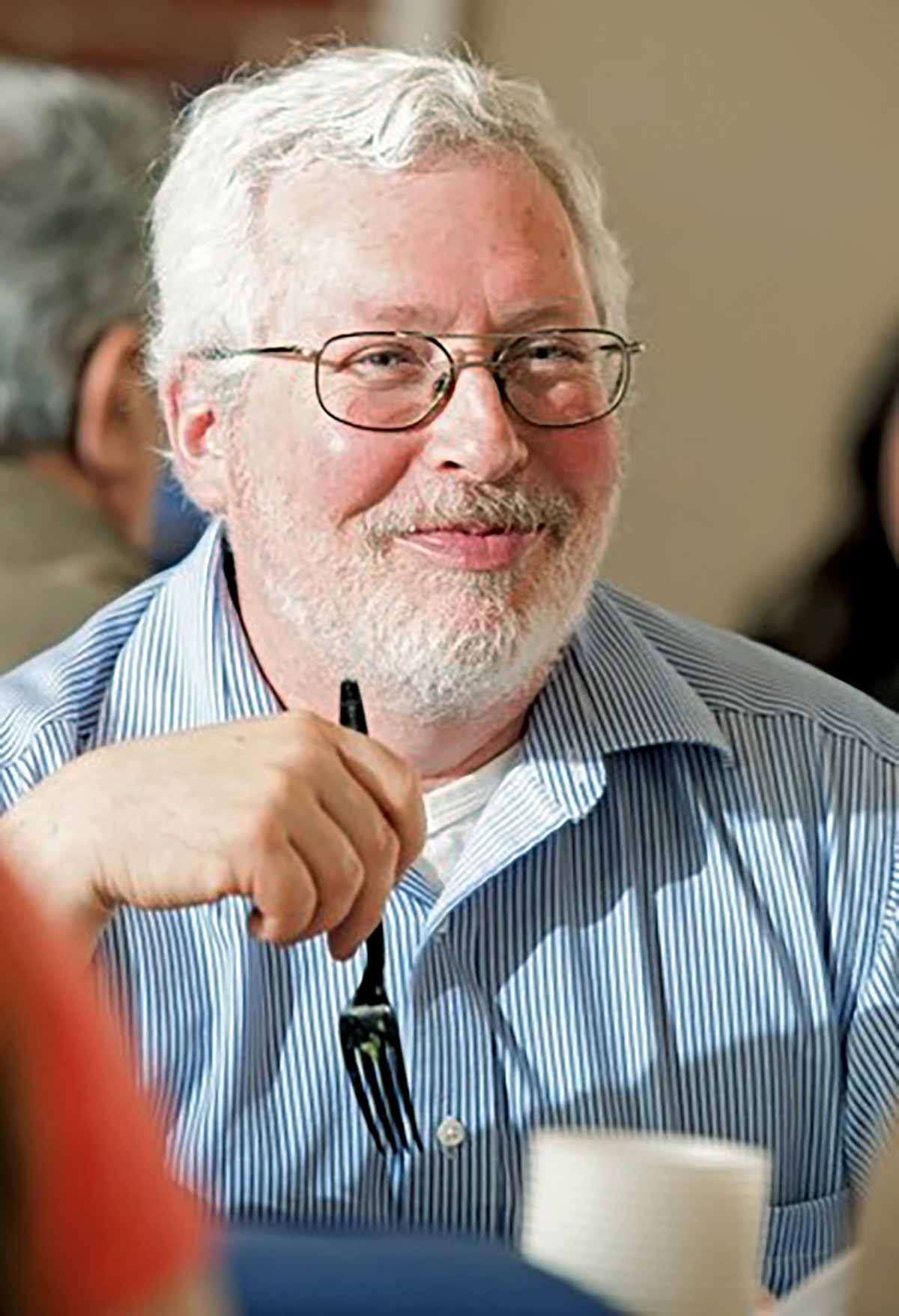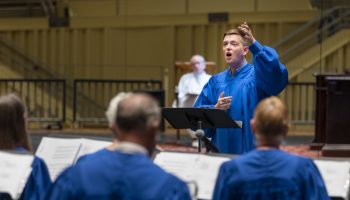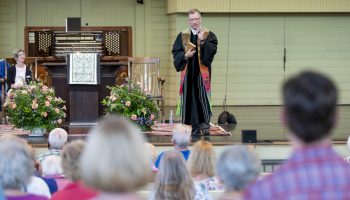Food is connection. It connects people, places and time periods around the world to one another.
Perhaps most importantly, food connects people across the dinner table. Rabbi Jonathan Brumberg-Kraus will be discussing why this is important during his lecture, “Food, Faith, and Fellowship: Connecting to Human and Other than Human Beings through Taste,” at 2 p.m. Tuesday in the Hall of Philosophy.
The lecture will also feature food’s connection to religion as part of Week Nine’s Interfaith Lecture Series theme, “Food and Faith.”
“Just about every religious tradition uses food and taste to articulate its values, to maintain its continuity, to do a lot of different things,” said Brumberg-Kraus, professor of religion and coordinator of Jewish Studies at Wheaton College.

Brumberg-Kraus grew up with a close relationship to food. He said his family always ate breakfast and dinner together, which was possible in part because his mother stayed at home and his father, a lawyer, refused to work late.
Those family values collided with faith, too, as he spent Friday evenings eating Shabbat dinner at his grandmother’s house down the street. Brumberg-Kraus said this is one of the more traditional ways eating manifests in religion, but he will also discuss eating as a religious behavior in and of itself.
“I’m trying to challenge a little bit what faith means,” Brumberg-Kraus said.
Religion and faith play a major role in Brumberg-Kraus’ academic interests. His doctoral thesis focused on the comparison of food traditions in Judaism and Christianity. He will discuss Tuesday, as noted in the title of his lecture, how food and eating can connect people to “other than human beings.”
All religions have important rituals surrounding eating, Brumberg-Kraus said, though there are many more Jewish cookbooks on Amazon than is proportionate to the Jewish population. He also said food is extremely important in Jewish holidays, reciting a joke by Alan King that summarized all Jewish holidays as, “They tried to kill us. We survived. Let’s eat.”
Now, Brumberg-Kraus’ research focuses particularly on the cognitive, sensory and communal dimensions of meal rituals. He will talk Tuesday about how taste is incorporated into the relationship between religion and eating. Brumberg-Kraus said he will draw on research from his current project, a book titled Culinary Midrash: Making Jewish Food, Making Food “Jewish.”
Although the ethical dilemmas surrounding food can be hard to process, Brumberg-Kraus said it’s worth it to eat mindfully. While it may take more time, he explained, it doesn’t take as long as people expect and it puts people back in control of the means of production.
“I would say, well, what are you doing that’s more important than eating or cooking?” Brumberg-Kraus said.





